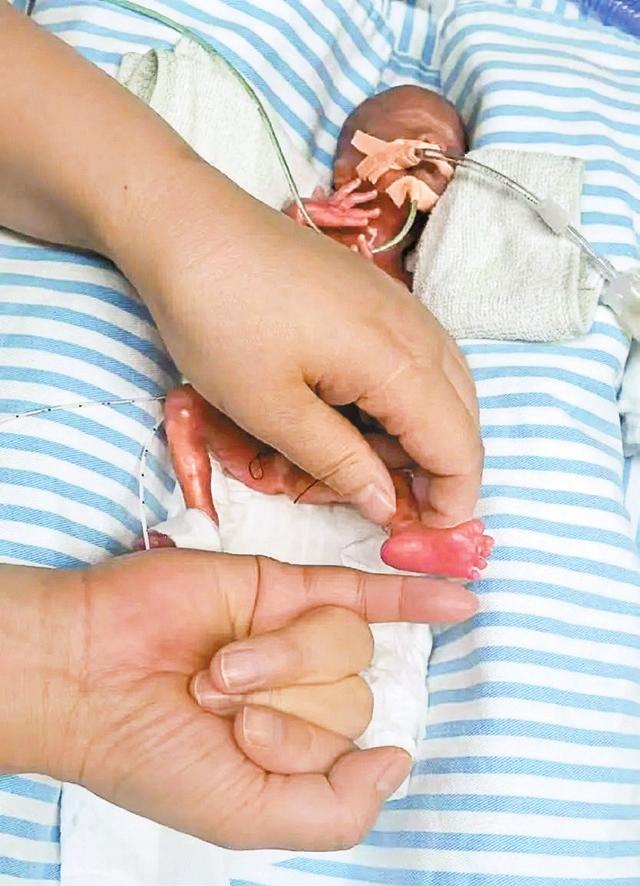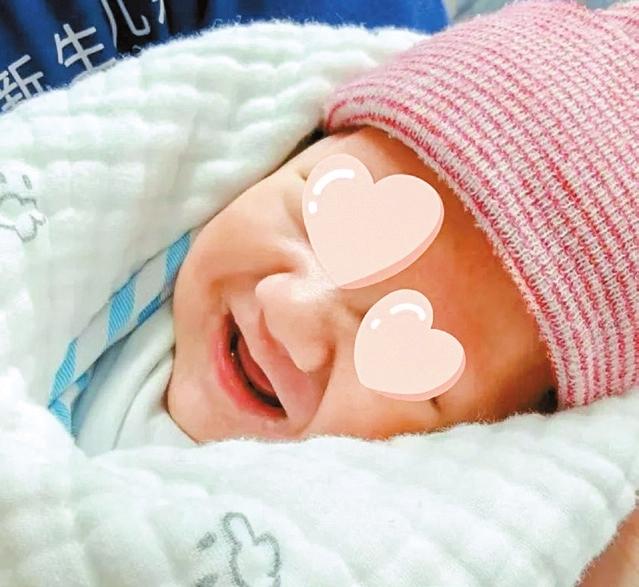

A POCKET-SIZED baby, with a birth weight of just 360 grams and at a gestational age of 22 weeks and 3 days, was discharged from the Shenzhen Maternity & Child Healthcare Hospital on Saturday after a grueling 139 days of treatment. This milestone marks the baby as the smallest surviving infant in Guangdong Province. The journey for the baby, under the alias Ruize, and his mother has been fraught with challenges. This pregnancy was the third for Ruize’s mother, who had previously suffered two miscarriages. In September 2024, an ultrasound revealed a critical condition: The fetus, at just 21 weeks, showed a continuous loss of blood flow at the end of the umbilical artery diastolic period. Despite recommendations by doctors to terminate the pregnancy due to the poor prognosis, Ruize’s mother was determined to fight for her child. Finding hope in the story of China’s youngest premature birth survivor, she traveled from Guangzhou to Shenzhen for advanced care. On Sept. 23, 2024, Ruize was born, his skin as delicate as a cicada’s wing, his vessels too slender for the insertion of a PICC (peripherally inserted central catheter) line, and his feet not larger than an adult’s little finger. The first golden hour of Ruize’s life was a race against time. Pre-warmed incubators awaited him, and within a minute of birth, medical staff had established a breathing channel. They swaddled his fragile body in plastic film to shield him from the cold, and within 18 minutes, he was in the neonatal intensive care unit (NICU). The next steps were equally critical: Umbilical artery and vein intubation succeeded, allowing the administration of life-saving drugs and nutrients. For Ruize, the ventilator was his lifeline to the world. The medical team meticulously adjusted its parameters, navigating through the complexities of his condition, which included fluctuating blood pressure, nutritional intake, and digestive issues, along with a heightened risk of infection due to an underdeveloped immune system. After 73 days of intubation and ventilation, Ruize reached a significant milestone when he was weaned off the ventilator at a corrected gestational age of 32 weeks and 5 days. He then spent nearly six weeks on non-invasive oxygen therapy before successfully weaning off oxygen by 38 weeks. Over 100 days after birth, Ruize achieved full enteral feeding, paving the way for his eventual discharge from the hospital. As time passed, Ruize’s weight and strength improved. He began to babble and would tightly grip the fingers of his caretakers. His mother, recalling the first kangaroo care session where she held him to her heart, couldn’t contain her emotions. “I felt his weak but powerful heartbeat,” she said, tears in her eyes. “Such a small body can warm people’s hearts.” The medical team and Ruize’s mother are optimistic about his future, one that seemed almost impossible when he was born weighing just 360 grams. (Zhang Yu) | 
